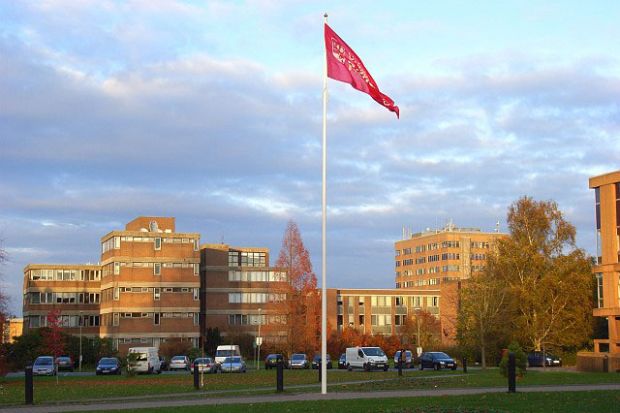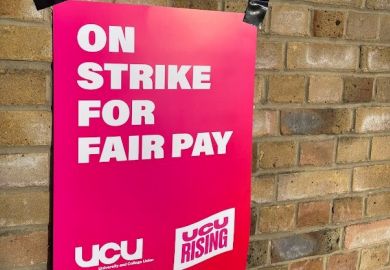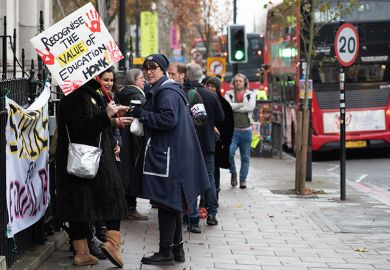Source: Andrew Smith
Derecognising two trade unions has helped the University of Reading to listen to its staff and take on their ideas during a period of major upheaval, a conference has been told.
Reading took the unusual step of derecognising Unison and Unite, which represent support staff in higher education, in January after about 18 months of consultation.
Reading’s director of human resources, John Brady, said the decision was taken because, among other things, just 5 per cent of staff on lower pay grades who were eligible to join Unison or Unite had done so.
Instead, the university proposed an independent employee forum, which would meet twice a term, to replace union representation, he told the Universities Human Resources annual conference near Warwick on 14 May.
He claimed that the proposed derecognition received only “negligible resistance” from within the university, with letters of opposition sent by the University and College Union and the students’ union.
The new structure has led to a “massive amount of more enthusiasm and energy” from staff about engaging with the university over its plans for change, Mr Brady added.
Reading’s new staff forum and other consultations had been extremely useful as the university underwent a major restructure of its IT provision and changes to procurement, he said.
It was also proving its worth as the university is midway through an “efficiency and effectiveness programme covering every aspect of university life”, Mr Brady insisted.
Some 99 per cent of administrative staff had taken part in a survey connected to the review, even though it aims to cut Reading’s administrative function by 60 per cent, he said.
“The new arrangements for collective consultation and [the university] committing to engage with its staff have been powerful for the university,” he said. The steps had helped Reading to “take forward a difficult situation with the goodwill we get [from staff]”, he added.
Mr Brady said he believed that the new “mixed economy” model of staff engagement, using the UCU and staff forums, would be effective at other universities.
Tony Jones, regional manager for Unison in the South East, said that the staff forum had yet to have any impact as it had yet to meet. He added that it was not clear who sat on it or when its sessions would take place.
He claimed that the actions of Reading’s vice-chancellor, Sir David Bell, suggested that he was “anti-trade union”, with derecognition having taken place ahead of job cuts in support services.
Register to continue
Why register?
- Registration is free and only takes a moment
- Once registered, you can read 3 articles a month
- Sign up for our newsletter
Subscribe
Or subscribe for unlimited access to:
- Unlimited access to news, views, insights & reviews
- Digital editions
- Digital access to THE’s university and college rankings analysis
Already registered or a current subscriber? Login





